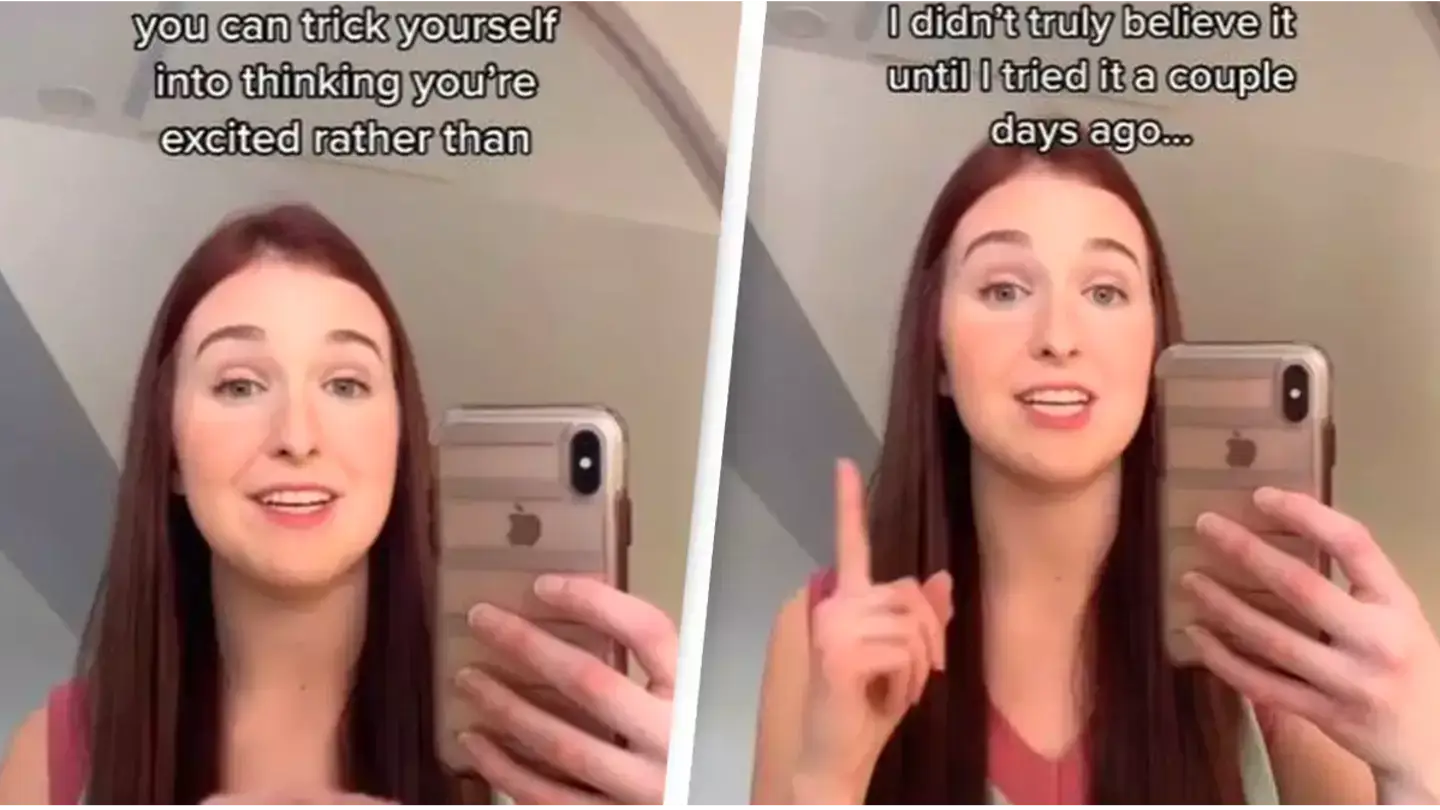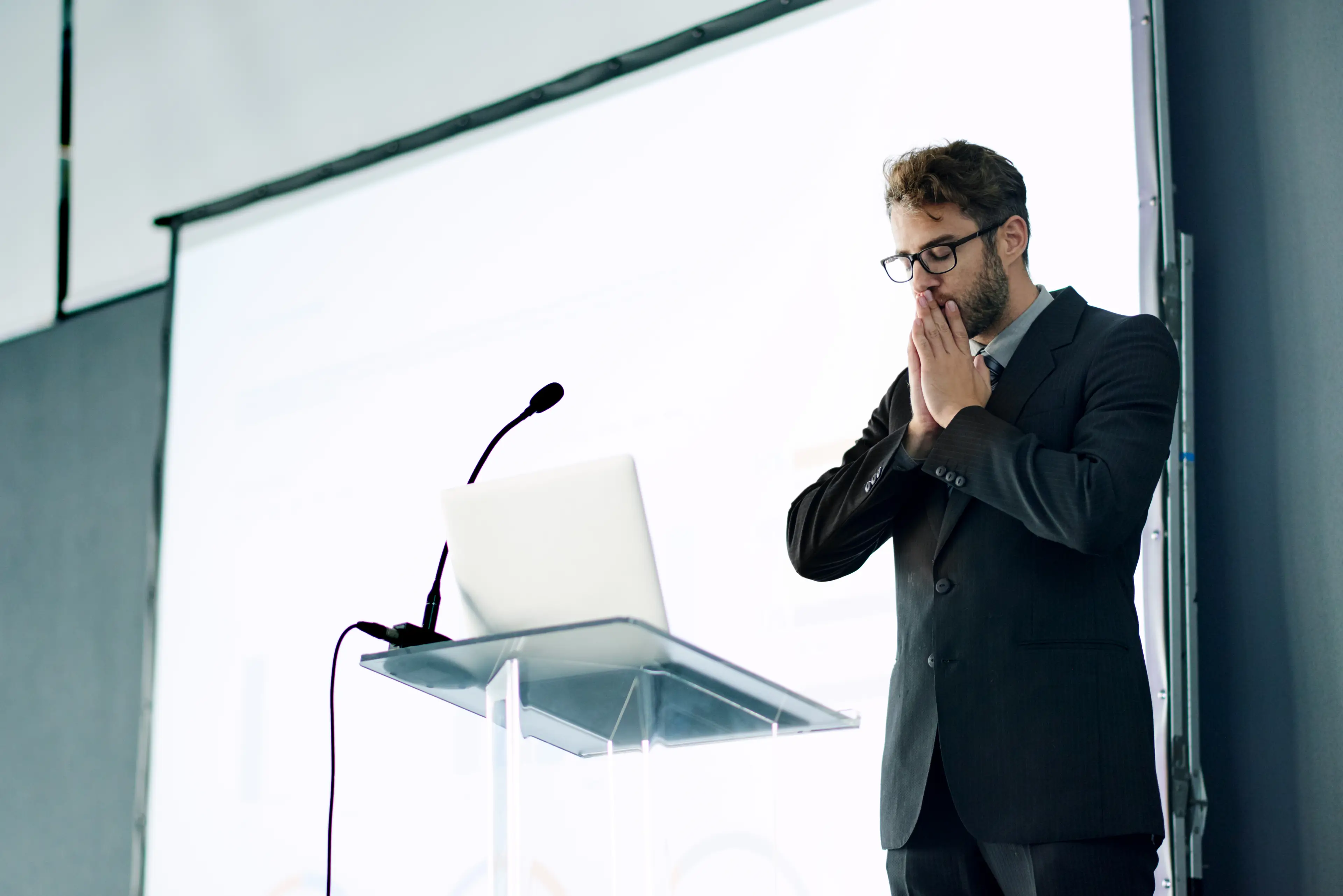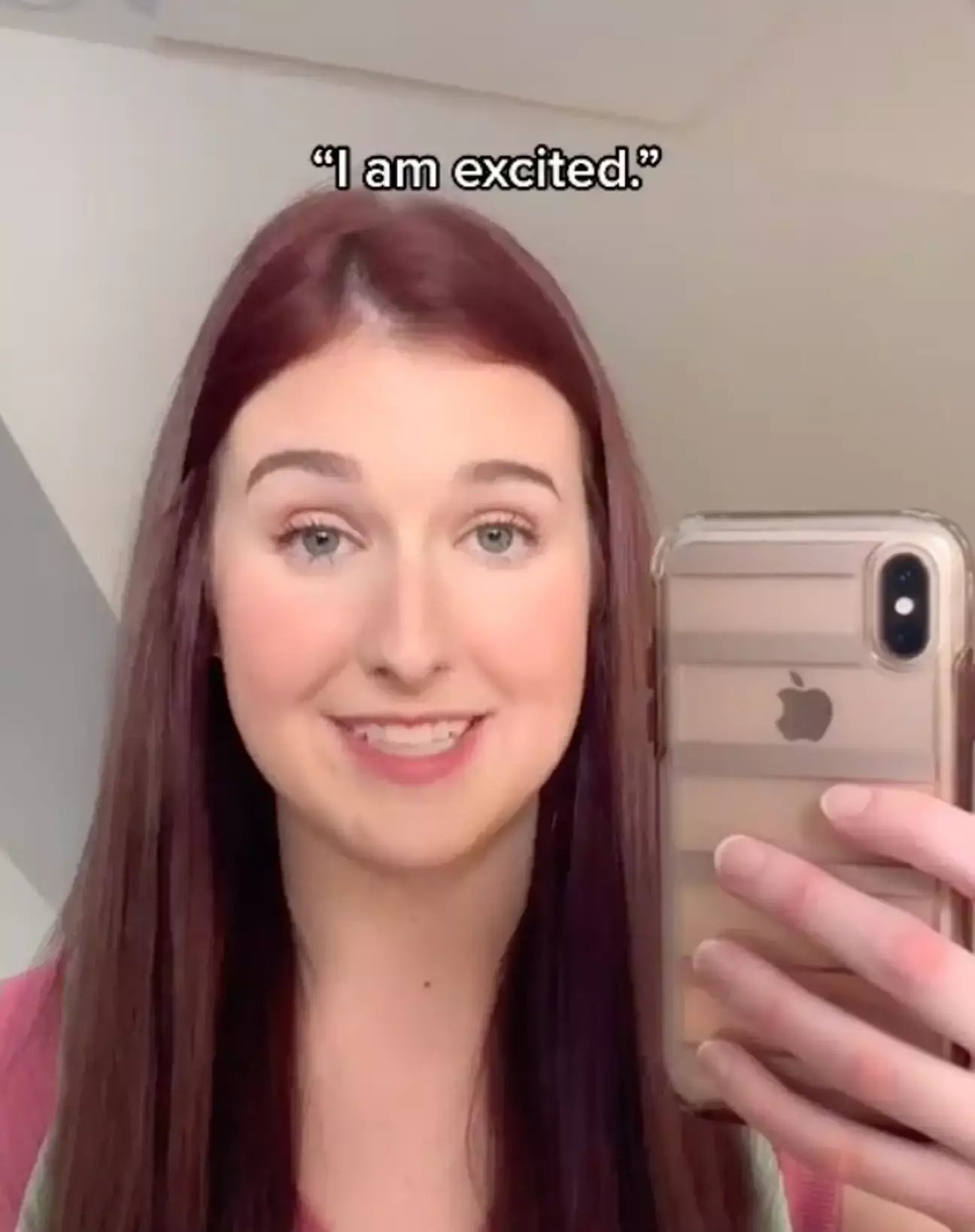
Have you ever been nervous? Of course you have, and you could have conquered this annoying emotion in seconds with a simple hack.
Now, no matter how confident you are, there are times where you doubt yourself.
For some people it is easy to brush off and you can excel after a quick pep talk with yourself.
But for others, it can be debilitating and prevent you from reaching your full potential.
Advert
Well, a psychology student has explained that by using just three words she was able to overcome her own nervousness.
Mollie Trainor, a TikToker and dancer who completed a masters degree in psychology, explained the concept in a viral video in 2021.

One social media user asked her: "Social scientists, what is one thing you know to be true about human behaviour that you just can't accept is true?"
Mollie explained that she initially didn’t believe the hack was true until she realized it worked for her.
She said: "Did you know if you have pre-performance anxiety for something coming up - maybe you’re nervous for a presentation or something - you can trick yourself into thinking you’re excited rather than nervous by just saying out loud to yourself 'I am excited'."
The reason for this, she explained, is because excitement and nervousness are both ‘high arousal’ states.
The technique is called anxious reappraisal.
"Physiologically, what’s happening to you between the two of them is pretty similar. So it’s easy to get your brain to reinterpret those signals as excitement rather than nervousness," Mollie continued.
This works better than just telling yourself to ‘calm down’ because calmness is a ‘low arousal’ state, she added.
The TikToker said she truly didn’t believe it until she tried it herself and it worked.
"The first thing you learn in psych is that humans are both more and less complicated than you’d think," she wrote in the caption of the video.
A 2013 study, carried out by a student at Harvard Business School, tested the theory in a number of anxiety-inducing situations.

"Whereas anxiety is a negative, aversive emotion that harms performance, excitement is a positive, pleasant emotion that can improve performance," the study’s author Alison Brooks wrote.
Brooks continued: "Anticipating the negative consequences of feeling anxious, many individuals attempt to down-regulate anxiety by trying to calm down.
"But decreasing anxious feelings is difficult because high arousal is automatic, and suppressing or hiding anxiety is often ineffective.
"Unlike anxious versus calm feelings, which differ in high versus low arousal, anxiety and excitement are arousal congruent, and minimal interventions may be sufficient to produce feelings of excitement."
Her findings showed that in most study participants, reframing anxiety as excitement was more effective than trying to calm down.
She found that this reframing actually improved participants’ performance in situations like public speaking, singing and performing math tasks.
Topics: TikTok, Psychology